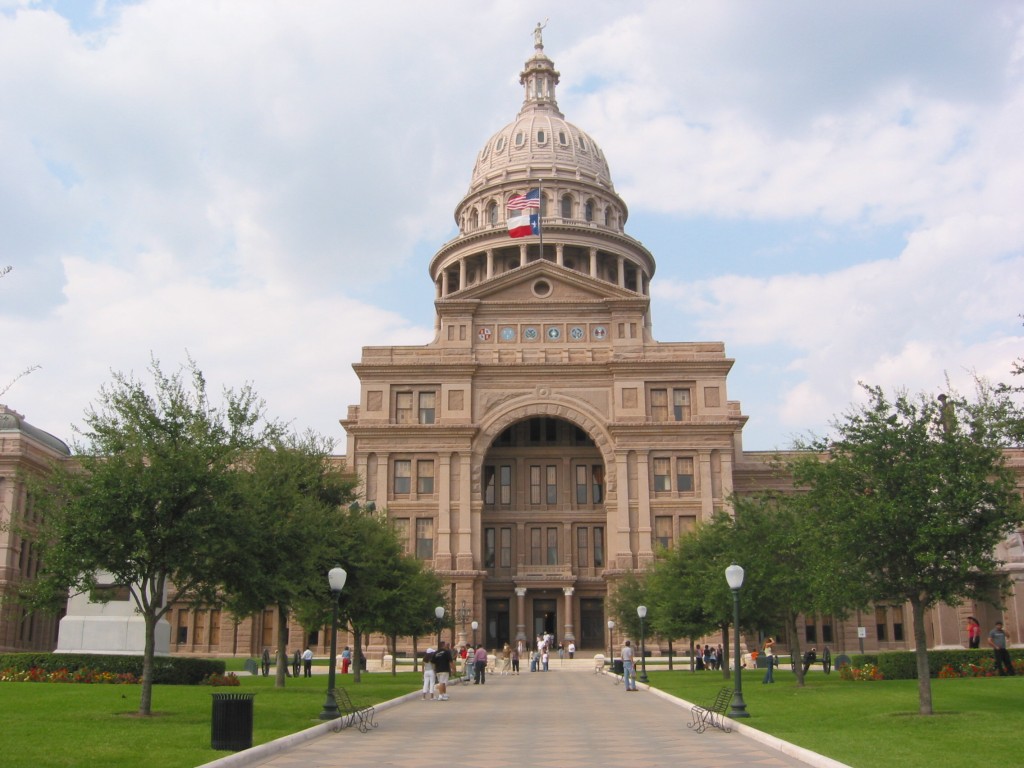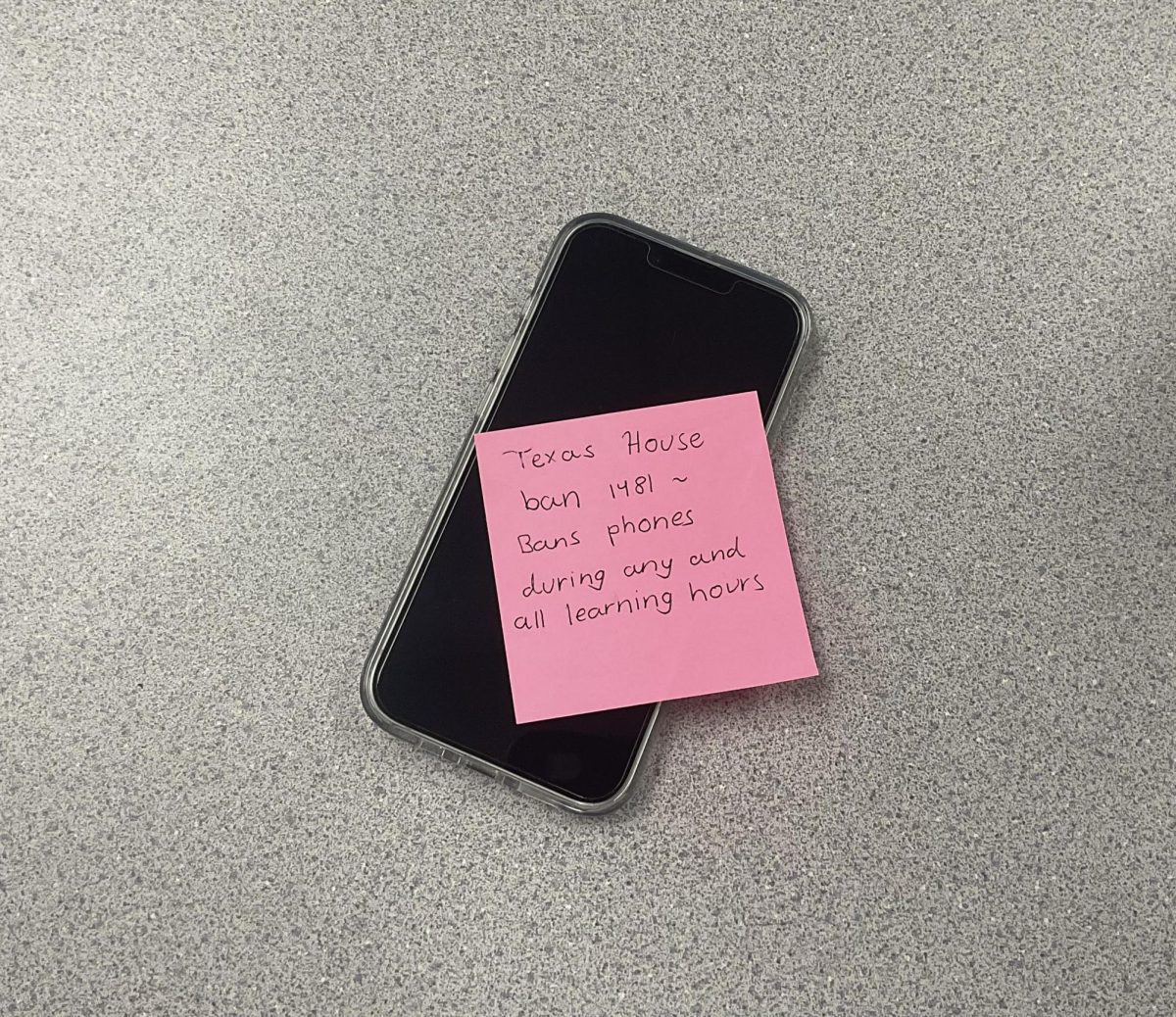From funding to classroom policies, the Texas Legislature passed multiple bills this summer concerning public education. While recent political tensions between the two parties have hampered the current special legislative session, some proposals are still being discussed.
Here are four of the major education-related bills of the summer that affect Chaps.
Personal Device Ban
House Bill 1481 requires school districts to make policies that ban using electronic devices during the school day.These include cell phones, smart watches, laptops and any other devices that use cellular data or the internet.
The device ban is meant to foster a more focused academic environment by reducing distractions and improving online safety of students.
“We also see times where students are pulling out phones and videoing other students or taking photos and putting them on social media,” Texas Association of School Administrators director Kevin Brown said.
However, many argue that the law threatens personal safety and limits the ability to communicate with friends and guardians during the school day. Multiple petitions against HB 1481 have been created online. Cyliyah Goodlow, who attends a school near Fort Worth, managed to gather over 135,000 signatures on her petition.
While the law went into effect Sept. 1, districts have an additional 17 days to adopt their own policy. Westlake began enforcing the policy Aug. 25.
Now, students are only allowed to use school-issued devices – not personal phones, laptops, or watches – for educational purposes. Authorized medical devices are exempt from the law.
Ten Commandments in Classrooms
Senate Bill 10 says that if public schools receive state-approved posters of the Ten Commandments as a donation, they are required to display them in classrooms Sept. 1 onwards.
If a school does not receive these posters through donation, they may, but are not required to, purchase them using district funds.
A federal judge temporarily blocked the bill from taking effect in some school districts Aug. 20.
The bill outlines specific visibility and content requirements for the posters. Poster must be placed in a conspicuous location, measure at least 16 by 20 inches and not have any content besides the mandated material.
Sixteen Texas parents of various religious and nonreligious backgrounds sued several school districts, including Austin ISD and Lake Travis ISD, in June.
Parents involved in the case were concerned that the bill overrides parents’ rights to dictate their children’s religious education — or lack thereof. More specifically, some criticized the state’s narrow, Protestant Christian-based interpretation of the Ten Commandments and of faith-based education in general.
However, many proponents of the bill contend that Christianity is an important part of U.S. history and even daily life.
For now, the court has come to the conclusion that the law violates the First Amendment of the U.S. Constitution, which mandates the separation of church and state.
The extent to which SB 10 is actually being followed across the state is unclear, but the districts involved in the court case are not required to comply at the moment. Given the requirements of the bill, Eanes schools likely would have to display the posters in the hypothetical case that the district receives donations.
Education Savings Accounts
Families will be able to apply to an education savings account (ESA) program starting in the 2026-27 school year under Senate Bill 2.
These state-funded accounts give families money to use for private school tuition as an alternative to the public education system.
Proponents of the ‘school choice’ ideology, which promotes the idea that children’s school should not be limited to their zip code path, support this program as it provides easier access to private schools.
However, some argue that ESAs waste state funds and hurt public schools. Others point out that they exclude the families of children with disabilities from financial support.
Any family is eligible to receive funds from this program, regardless of income level. The only requirement is that the child is eligible to attend at least Pre-K in a Texas public school. However, low-income families take priority in the case that the number of applicants exceeds the spots available.
Only K-12 students are allowed to receive funds from this program. Students who have graduated high school or are otherwise ineligible to attend a public school may not benefit. Parents who are state elected officials, including senators and representatives, are not allowed to participate in the program either.
The Texas Comptroller of Public Accounts, which acts as “chief steward of the state’s finances,” will administer this program.
Elimination of STAAR Tests
STAAR (State of Texas Assessment of Academic Readiness) Tests are to be eliminated beginning in the 2027-28 school year. They will be replaced by three shorter tests in the beginning, middle and end of the year.
House Bill 8 passed Aug. 26 after much discussion and similar proposals throughout the summer.
The currently required STAAR tests for high school students are Algebra I, English I, English II, US History and Biology.
The statewide standardized testing that has been in place since 2012 is being eliminated for a few reasons. Some parents argue that the stress of preparing for—and passing—the STAAR is too much for their children, and teachers add that preparation takes away instructional time that could be better spent on actual course material.
Furthermore, politicians argue that it is unfair for schools’ funding, rankings and other evaluations to be primarily based on a singular metric that comes from only one test despite diverse school education and needs across the state.
One of the changes that will be brought by the implementation of the three tests throughout the school year is that results will be returned within 48 hours, which is a much shorter grading period than for STAAR tests.
The Texas Education Agency will also be granted more oversight on the content and administration of the tests.







